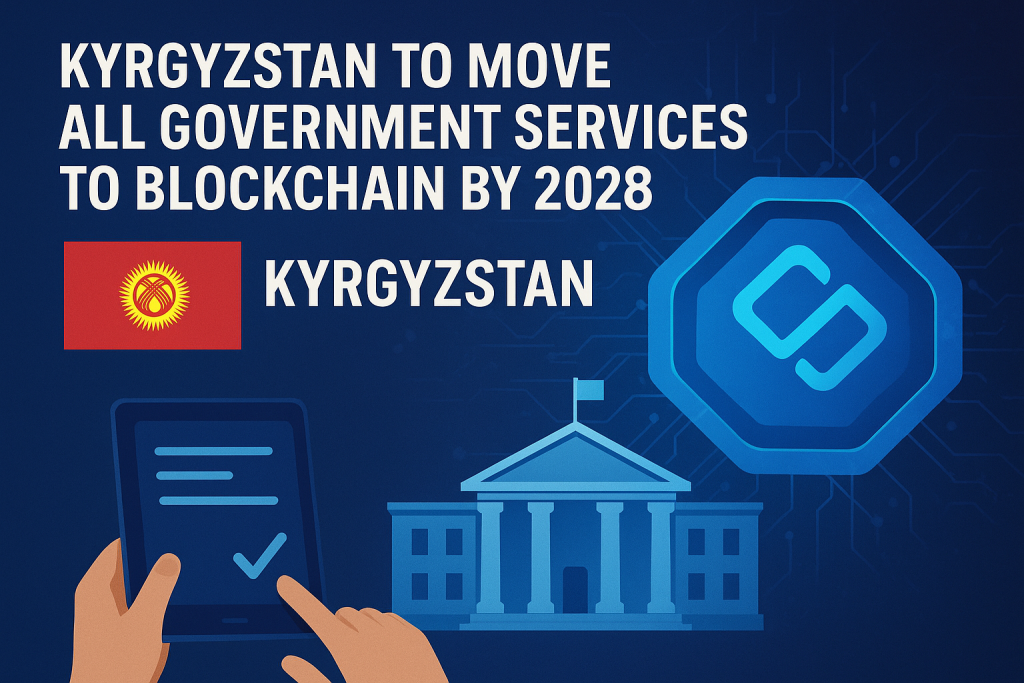Kyrgyzstan has unveiled ambitious plans to migrate all key government services to blockchain by 2028 as part of its broader Digital Kyrgyzstan 2024–2028 strategy.
Prime Minister Adilbek Kasymaliev, speaking in an interview with Cointelegraph, emphasized that digitization, alongside infrastructure development and investment in human capital, is a top national priority. According to him, by 2028 every essential public service will be available online and integrated with blockchain technology.
Why It Matters
The government expects this transition to cut bureaucracy, build citizen trust, and boost transparency in state operations. Kasymaliev also stressed that blockchain is not only a tool for efficiency but also a foundation for investor confidence and foreign capital attraction.
Ongoing Digital Reforms
- Since 2022, Kyrgyzstan has enforced a Virtual Assets Law, regulating issuance, storage, and circulation of digital assets.
- A national crypto exchange (Coin National Exchange) already operates under state oversight, with independent audits and public reserve disclosures.
- The government is preparing to launch USDKG, a gold-backed stablecoin issued in cooperation with the Ministry of Finance and secured by reserves held at the Development Bank. Audits of these reserves will be publicly accessible.
Building the Infrastructure
Beyond blockchain, the country is investing in new power plants, transport corridors, and data centers to support its digital economy. Universities are also expanding IT and engineering programs to prepare a skilled workforce.
Strategic Vision
Kyrgyzstan wants to position itself as a digital and investment hub in Eurasia, combining green energy, flexible regulation, and rapid adoption of cutting-edge technologies.
“We invite the global Web3 community, venture capital firms, and tech companies to look at Kyrgyzstan not as a periphery, but as a new strategic growth point where ideas can safely scale,” Kasymaliev said.
Earlier this year, Binance signed a partnership agreement with the Kyrgyz government, underlining the country’s push to integrate global blockchain players into its ecosystem.


